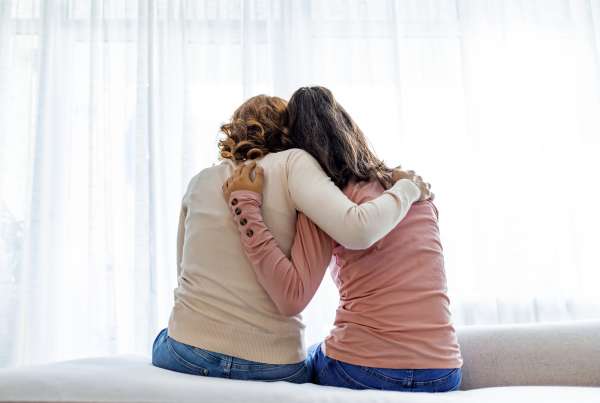A simple act of kindness can go a long way, especially for those in recovery. No one comes  to treatment because their life was in order or because they are doing well. They come here because they are suffering, because they are emotionally lost, and some might even say broken. Over time, I have chosen to shift my own perspective and ceased to use the word “broken” in reference to recovery. Instead, I use injured. I find it more akin to supporting the healing process as it facilitates a more profound perception of ourselves as we grow and change. Peter Levine, founder of Somatic Experiencing and author of “In an Unspoken Voice,” says this about trauma and healing, “Trauma is a fact of life. It does not however, have to be a life sentence.” Stepping or falling on the path of recovery, tired, injured and overwhelmed, recognizing the light representing the possibility of healing can be profound, especially as we grapple with the necessary changes required to get sober.
to treatment because their life was in order or because they are doing well. They come here because they are suffering, because they are emotionally lost, and some might even say broken. Over time, I have chosen to shift my own perspective and ceased to use the word “broken” in reference to recovery. Instead, I use injured. I find it more akin to supporting the healing process as it facilitates a more profound perception of ourselves as we grow and change. Peter Levine, founder of Somatic Experiencing and author of “In an Unspoken Voice,” says this about trauma and healing, “Trauma is a fact of life. It does not however, have to be a life sentence.” Stepping or falling on the path of recovery, tired, injured and overwhelmed, recognizing the light representing the possibility of healing can be profound, especially as we grapple with the necessary changes required to get sober.
This is prime time for kindness.
Imagine coming into treatment terrified, not knowing what to expect, not knowing what the outcome will be. Imagine someone witnessing your feelings and sense of overwhelm, validating you and encouraging you to have your own experience. Imagine someone looking at you with kindness in his or her eyes, offering empathy rather than judgment. Imagine feeling heard and being seen in this way. These are the very things that can allow our hearts to soften just enough to let the light in.
Doing the work required in recovery requires courage. It requires that we delve into the innermost parts of ourselves with a sense of curiosity, bravery, and kindess. It’s not comfortable looking at the causative factors of why we were using drugs and alcohol in the first place. When one is in a nurturing, safe environment where healing is cultivated and encouraged by support staff and skilled clinicians, change begins to occur. Even when there is resistance!
As sobriety takes hold, and clients begin to practice being of service, kindness acts as the through line. It is through small acts of kindness that we can begin to see that we are not the only ones suffering, nor are we the only ones having the experience we are having.
There is a wonderful Buddhist story about a grieving mother named Kisa, who lost in the depth of her grief, was unable to reconcile herself with the loss of her son. She begged and pleaded for help and began to go mad in the process. She asked the Buddha for help; The Buddha told her that if she wanted to make medicine, she would need mustard seeds, but the caveat was this: she could only gather mustard seeds from a home where no one had died. Through her search, something happened to Kisa: She discovered that she was not alone in her suffering and in her grief but rather in great company. Not one home was without loss. While she came back empty handed, she found herself feeling less alone. Risa’s suffering was met with kindness, empathy and understanding. The emotional shift for her was profound; her healing could truly begin.
I like this story in relation to recovery because often times, there is a perception that our suffering is unique. We inevitably discover that our suffering is, in fact, in direct alignment with our community. Though our experiences are our own, the resulting dissatisfaction is universal. Through connection and acts of kindness and service, we can walk this path as a community seeped in healing and encouraging change.






